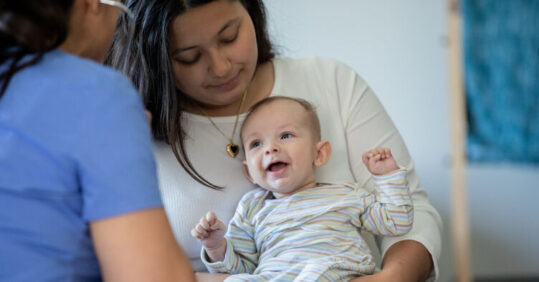Workforce issues and unclear funding driving ‘uneven’ perinatal mental health support

Uneven improvement in perinatal mental health services across the UK is largely due to workforce planning and ‘insecure’ funding, a study has suggested.
A new report, published by the Maternal Mental Health Alliance (MMHA) on Wednesday, suggested that mothers may be missing out on specialist mental health support due to a lack of clarity and transparency surrounding funding.
The research found that 89% of 70 regions across the UK which provided data had seen their budget for these services increase between 2020/21 and 2022/23.
Related Article: New preceptorship package for social care nurses
However, 66% of those areas indicated that there would be an underspend for 2022/23, which ‘will inevitably mean delivery of services are impacted and not all women and families who were meant to receive care may be able to access it’.
The MMHA found that the most common reason for underspend was workforce-related issues, cited by 58% of respondents, but many teams also said that underspend was due to ‘unclear or late budget allocation, with no guarantee of continuation’.
‘The extraordinary workforce challenges across the UK and throughout the health system are well known,’ the report acknowledged.
‘However, without timely allocation and reasonable commitment of future monies, teams cannot plan their work effectively, the recruitment process is not able to go ahead and desperately needed roles remain vacant, all of which limits the support available to families and increases the pressure on an already-stretched workforce.’
One healthcare professional, speaking to the researchers, said that their service was ‘working far beyond funded capacity which – as predicted and highlighted repeatedly – is now manifesting as increased sickness, stress, burnout and increased staff turnover’.
Related Article: Applications to study nursing in England at ‘new low’
The report comes as the Institute of Health Visiting (iHV) this week highlighted the ‘patchy provision and inconsistent commissioning arrangements’ for specialist health visitors in perinatal and infant mental health.
These specialist roles were created seven years ago and are now present in each of the nations of the UK.
However, the iHV found that there was significant variation in job description, clinical case-loading expectations, training, and in where the role sits within universal specialist perinatal mental health services.
Responding to the MMHA’s research, Melita Graham, iHV head of mental health, said that ‘too many families are still facing a post code lottery and not receiving the care that they need’.
Related Article: Paul Rees appointed as permanent NMC chief executive and registrar
Ms Graham added: ‘Strong local leadership is important for maximising the health visitor contribution and to join the junctions between services.
‘Specialist health visitors in perinatal and infant mental health are therefore a crucial element of an integrated perinatal and infant mental health care system.’

See how our symptom tool can help you make better sense of patient presentations
Click here to search a symptom




